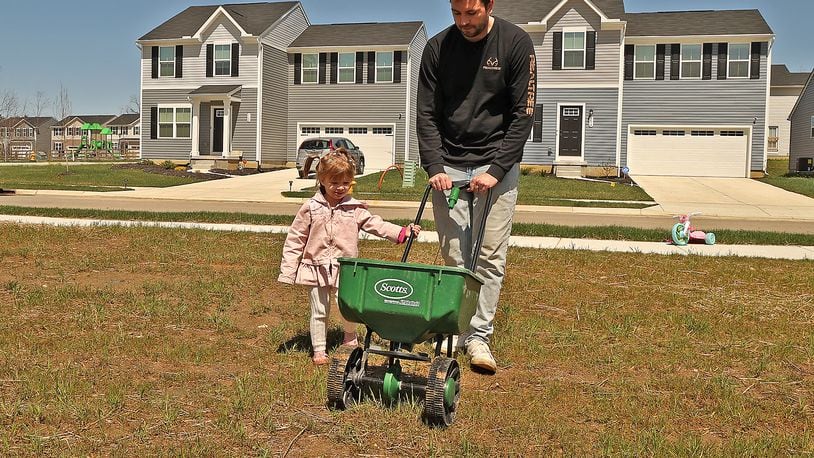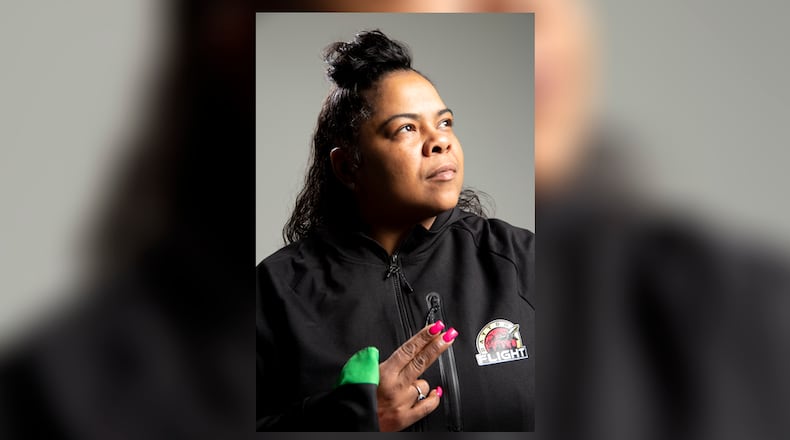Unified Power (UP) is an example of a local community land trust gaining its footing in the West Dayton area to help Black people who have experienced high levels of disenfranchisement and suffered from generational poverty. The mission of UP is to focus on Awareness, Access, and Quality Affordable Housing for low-income families in West Dayton.
Awareness deals with helping impoverished families to refine their self-identity. Many people who struggle to make ends meet have not had the luxury of knowing who they are at their core.
So, through various educational modalities, Unified Power works to close the gap in self-awareness, community awareness and resource awareness. By closing the awareness gap, UP builds bridges and creates accessibility to community resources. We do not know what we don’t know.
Finally, Quality Affordable Housing can establish generational wealth for oppressed families. The end goal, after boosting awareness of self and community in impoverished communities and creating access points for resources, is to offer homes and pathways to upward mobility for the downtrodden and forgotten.
Through dozens of community conversations, we discovered that people in the above specified areas who struggle economically and would be first-time homeowners need intense wrap-around services for their home purchases.
Founded in 2018 by Kenya Baker, Mike Motley, Tiffany Brown and other concerned citizens, UP seeks to not only create permanent affordability in the West Dayton region of 45402, 45405, 45406, 45416, 45417 and 45426, but most importantly create a pathway of upward mobility. UP aims to create permanent affordability in land and housing by using a perpetual ground lease that locks homes into a 99-year contract to ensure the property remains within 5-7% increase of fair market value with regards to homeowner and trust equity. Equity is split at a generous rate with the owner if withdrawn or if the house is sold.
The model sustains its viable existence by utilizing a generous equity split between the Trust and the homeowner. Some added features are wrap-around services to help prepare the homeowner with financial literacy, homeowner maintenance classes and ongoing case management.
People need more than a place to stay that they can call their own. People need to have a community that supports tranquil and confident living. After hundreds of conversations with low-income families, the board and Executive Director of Unified Power know that Black West Daytonians are ready for upliftment and Unified Power is ready to boost up our neighbors.
Kenya Baker is the Executive Director of Unified Power.
Housing affordability in the Miami Valley

As rents continue to climb across the region and many local residents find themselves working in occupations that on average do not pay enough for them to afford modest rental units, affordable housing is becoming an increasingly important issue for our communities and communities across the nation. New housing and commercial developments are planned across our region and each one sparks heated debate among residents who will live near them, the developers of these projects and civic leaders who must balance the needs of existing residents with growing the local economy and attracting newcomers.
» Community land trusts can be a powerful tool to fight generational poverty
» ‘Accessory dwelling units’ can help affordability, homelessness
» Prefabricated housing can make grassroots development possible
» Not-for-profit housing organizations step in to offer affordable homes
» Highlights from Aug. 24 Community Conversation
» Domestic violence and affordable housing shortage linked
» Ohio must bridge the gap between low wages and high rents
» COVID, housing issues have disproportionally affected low-income individuals, people of color
» Our communities should ‘build with care and thoughtfulness’
» Balancing the needs of residents with growing the local economy
About the Author

